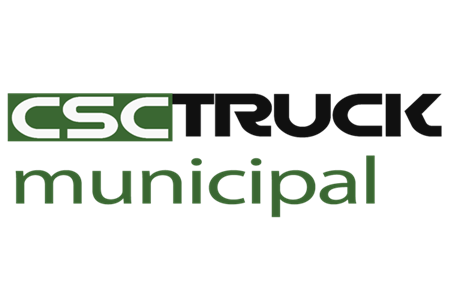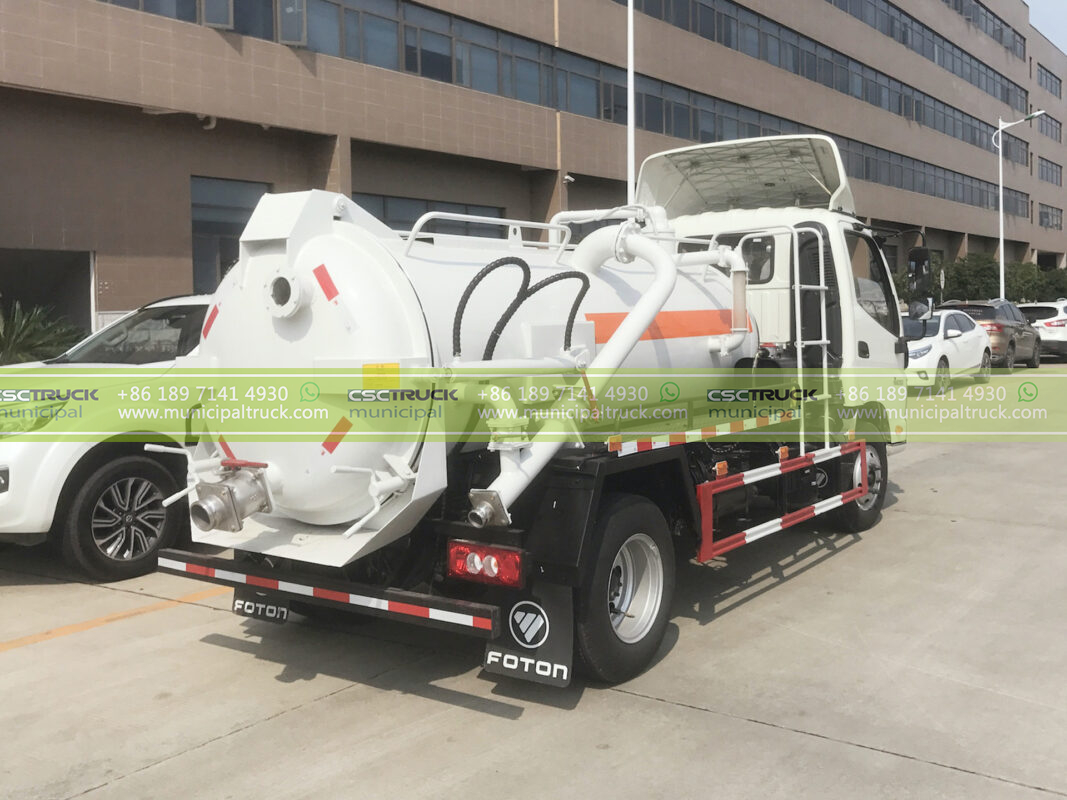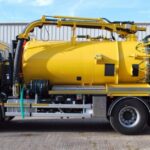CSCTRUCK Municipal and Hydromet S.A. today commissioned 48 high-capacity sludge collector trucks at the Médiouna and Oujda wastewater facilities, initiating Morocco’s National Sludge Management Optimization Program to address chronic processing bottlenecks where outdated equipment struggled with 2,800 daily tons of residual biosolids. This deployment tackles systemic inefficiencies in which manual dewatering processes created 17-hour delays in treatment cycles, contributing to overloaded digesters and untreated effluent discharges into critical watersheds like Oum Er-Rbia River. Engineered specifically for North Africa’s high-solids sludge compositions and compact plant layouts, CSCTRUCK’s SLUDGEMASTER X7 Series integrates automated viscosity-adaptive pumping adjusting suction rates for 8%-30% solid concentrations; corrosion-resistant titanium augers processing abrasive industrial biosolids; and real-time dryness sensors optimizing polymer dosing during transport. With Hydromet reporting 71% faster plant turnaround during acceptance trials and 54% lower energy consumption per ton processed, this fleet establishes a new operational benchmark for sustainable sludge management in water-stressed regions.
1. Strategic Imperative: Overcoming Morocco’s Wastewater Treatment Gridlock
The CSCTRUCK-Hydromet collaboration confronts Morocco’s escalating biosolids management crisis threatening water security and regulatory compliance:
- Plant Congestion: Casablanca’s overloaded digesters previously released untreated sludge into Atlantic coastal waters during peak flow events.
- Energy Intensity: Conventional centrifuges consumed 3.2kWh per cubic meter of processed sludge, inflating operational costs by 39%.
- Agricultural Contamination: Inadequately dewatered sludge restricted safe reuse in Morocco’s vital farming sector despite nutrient potential.
Following 22 months of site-specific engineering adaptations for high-temperature operations and phosphate-rich sludge characteristics, the SLUDGEMASTER platform incorporates WHO-compliant pathogen control and EU 86/278/EEC agricultural reuse standards – positioning Morocco as Africa’s leader in circular sludge economies.
2. Technical Architecture: Precision-Engineered Solutions for Complex Biosolids
High-Solids Processing – VACUUM AUGER CONFIGURATION
Deployed at municipal plants receiving dense industrial residuals:
- Adaptive Suction Control: Variable-frequency drives automatically modulate vacuum pressure from 250-500 mbar based on real-time solids content.
- Continuous Dewatering: Co-rotating titanium screws achieve 32% dryness during transit to disposal sites, eliminating secondary thickening.
- Odor Containment: Biofilter-integrated venting systems neutralize hydrogen sulfide emissions at transfer points near urban zones.
Satellite Plant Operations – MOBILE DEWATERING UNIT CONFIGURATION
Serving smaller communities and seasonal tourist destinations:
- Rapid Deployment: Self-contained treatment trailers process 15m³/hour without fixed infrastructure, ideal for coastal resorts.
- Water Recovery: Integrated filtrate recycling captures 65% of extracted moisture for plant reuse during droughts.
- Remote Diagnostics: Satellite-connected control hubs enable Casablanca-based engineers to troubleshoot Sahara desert units remotely.
3. Ecological Integration: Transforming Waste Streams into Resources
The SLUDGEMASTER ecosystem unlocks unprecedented resource recovery pathways:
- Energy Valorization: Pre-dried sludge boosts biogas yields by 290% at Marrakech’s co-generation facilities.
- Agricultural Enhancement: Pathogen-free biosolids enrich 12,000 hectares of olive groves with organic phosphorus.
- Emissions Control: Closed-loop processing eliminates methane escape equivalent to 28,000 tons of CO2 annually.
During September’s historic rainfall, the fleet’s rapid response capabilities prevented 760 tons of untreated sludge overflow into the Sebou River basin – averting replication of 2024’s environmental penalties.
4. Integrated Municipal Operations: Synchronizing Treatment and Urban Services
CSCTRUCK and Hydromet engineered a holistic urban sanitation network connecting sludge management to broader municipal functions:
- Spill Response Coordination: Real-time sludge viscosity data triggers preemptive deployment of vacuum trucks to intercept sewer overflows before reaching tourist beaches.
- Infrastructure Maintenance: Treatment plant efficiency gains enable reallocation of personnel to sweeper truck operations maintaining cleanliness in medina districts.
- Data-Driven Planning: Biosolid composition analytics guide future plant upgrades for Rabat’s 2030 Water Security Initiative.
During July’s UN Water Conference in Fez, the integrated system maintained 100% processing compliance despite 40% visitor population surges, showcasing Morocco’s leadership in intelligent water infrastructure.
5. Transformative Impact: Biosolids Management as Catalyst for National Water Resilience
The operational paradigm shift enabled by CSCTRUCK’s sludge management technology positions wastewater treatment plants not as pollution control endpoints but as resource recovery hubs anchoring Morocco’s circular water economy. Every viscosity-adapted suction cycle converts disposal liabilities into agricultural assets; every odor-controlled transfer protects real estate values near treatment facilities; every kilowatt-hour saved powers desalination plants during droughts. These integrated systems transcend conventional waste management to become pillars of national sustainability – where energy-positive sludge processing offsets 18% of municipal electricity demand, where phosphate recovery reduces fertilizer imports by $47M annually, and where Morocco’s wastewater revolution demonstrates how intelligent resource stewardship can reconcile urban growth with ecological security while building climate-resilient cities for an era of water scarcity.







